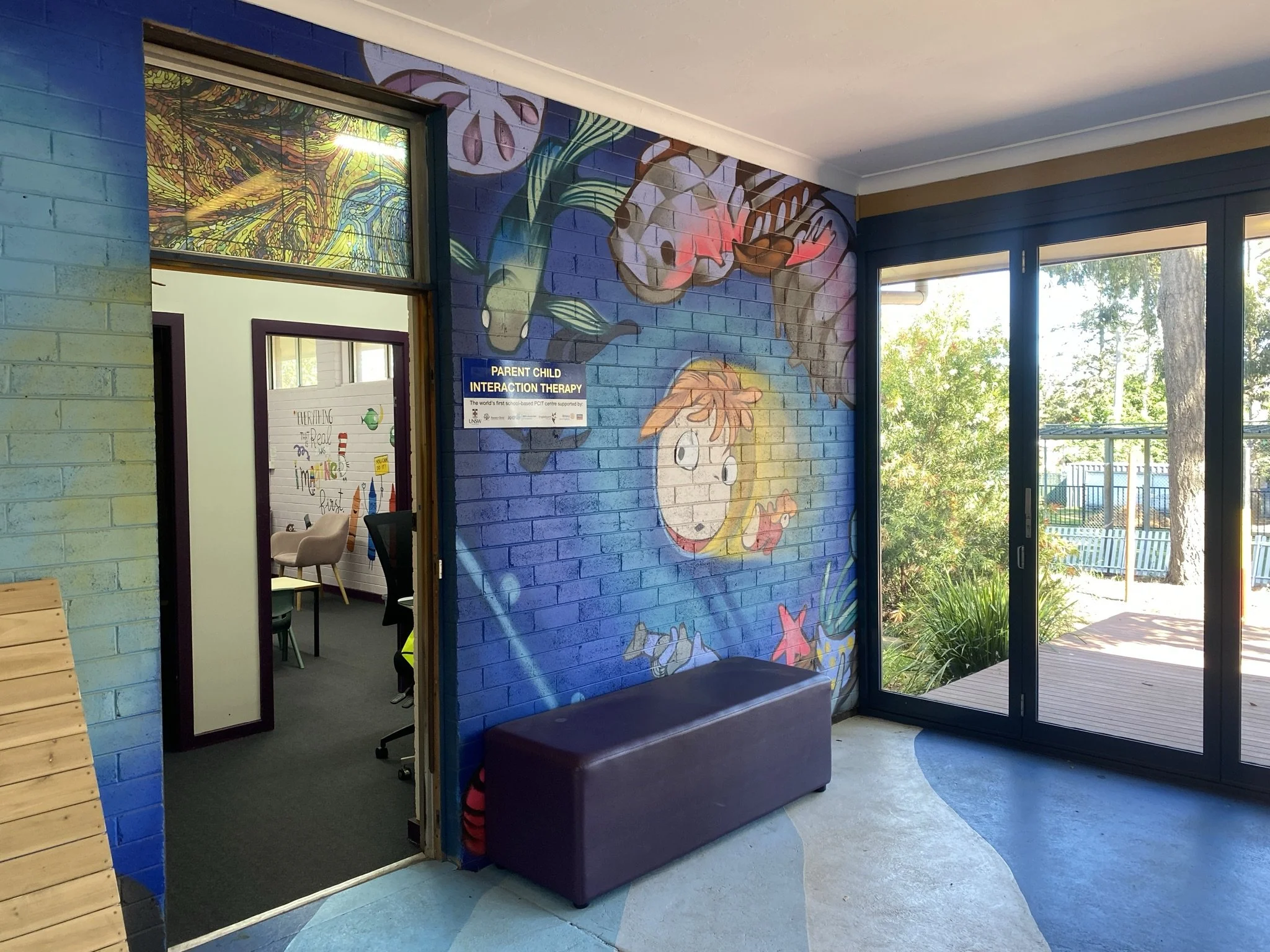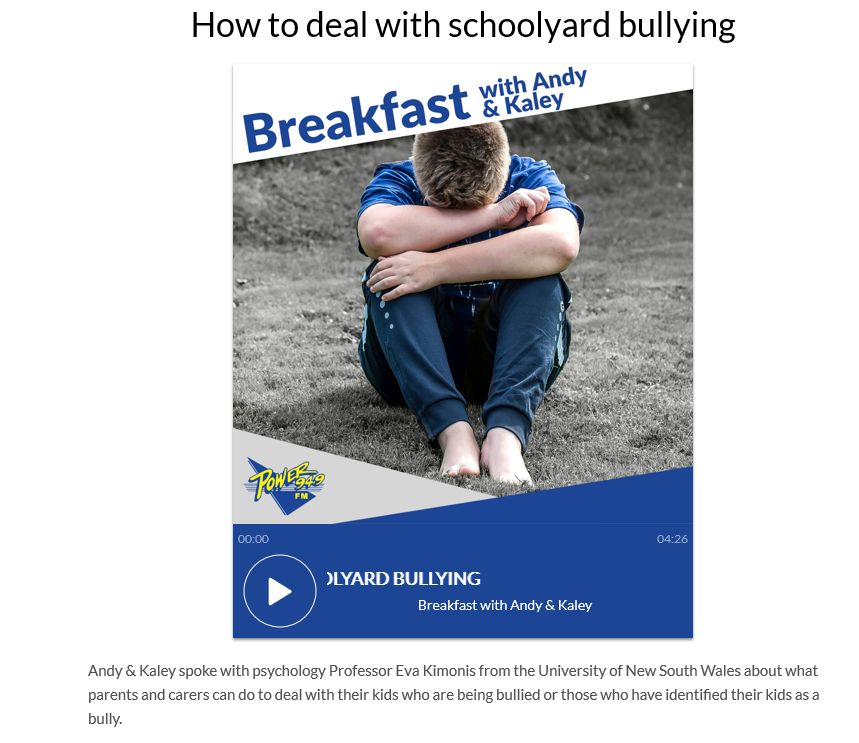ACAMH Podcast with Professor Eva Kimonis
ABC Podcast Episode on Callous-Unemotional Traits Featuring Professor Eva Kimonis
Novel Behavioural Therapy for Children with Treatment-Resistant Conduct Problems Produces Lasting, Positive Results
PCRC Team Offering Treatment Hope for Children with Callous-Unemotional Traits
The Parent-Child Interaction Therapy (PCIT) Program Wins Award
The Parent Child Interaction Therapy (PCIT) program was awarded a Secretary’s Award for School Achievement in the 2020 NSW Minister’s and Secretary’s Awards for Excellence.
UNSW Science Discussion on Parenting and Relationships in the Pandemic
Our Dean, Professor Emma Johnston, explored how COVID-19 might shape relationships and parenting in the future with UNSW psychologists Dr Georgie Fleming and Dr Steven Most
Therapy for Children with Severe Behavioural Problems Works Online, Trial Shows
Sherry Landow: A real-world trial has tested the effectiveness – and revealed the challenges – of adapting behavioural therapy to the online world.
ABC News Interview with Dr. Georgie Fleming on “Parenting During a Pandemic” – UNSW Science
Parenting tips during home isolation from UNSW Psychology academic Dr. Georgie Fleming
Parenting in a Pandemic: a Child Psychologist’s 5 Top Tips
Dr Georgie Fleming recommends five “pandemic parenting” strategies – including how to best use special play, praise, rewards, consequences and self-care.
Radio Interview with Dr. Eva Kimonis on “How to Deal with Schoolyard Bullying”
“Andy & Kaley spoke with psychology Professor Eva Kimonis from the University of New South Wales about what parents and carers can do to deal with their kids who are being bullied or those who have identified their kids as a bully”
PCIT School-Based Clinic Launch at Ingleburn Public School Australia
Parent-Child Interaction Therapy School Based Clinic Launch, Ingleburn PS, Australia
Support Offered to those Struggling to Manage Severe Behavioural Problems in Children
“The University of New South Wales (UNSW) Sydney has partnered with a network of public pre-schools and primary schools in south western Sydney to establish one of the world’s first school-based clinics to provide evidence-based early intervention to young children with severely disruptive behaviour.”
UNSW and Public Schools Help Children with Severe Behavioural Problems
One of the world's first Parent-Child Interaction Therapy school-based clinics has opened at Ingleburn Public School.
School Launches Innovative Program to Nip Destructive Behaviour in the Bud
“An innovative program which could nip destructive behaviours like substance abuse and criminal activity in the bud is now active at Ingleburn Public School.”
Good Morning Macarthur: Featuring the World’s First PCIT School-based Clinic
Parents ‘Coached’ by Therapists to Help Disruptive Kids – Macarthur Chronicle
“Ingleburn Public School is among several schools in south west Sydney trialling an innovative program designed to address emotional and disruptive behaviour issues in children. Parent-Child Interaction Therapy is being rolled out across seven schools in the Macarthur and south west Sydney regions
over the coming weeks.”
Help for Children with Severe Behavioural Problems – UNSW Science Research Highlight
“Innovative therapy for children with severe conduct issues promises profound benefits for families, schools and society at large.
Severe disruptive behaviour in young children puts a terrible strain on parents, siblings and teachers, but just as worrying is the high chance the child will go on to suffer mental health problems or follow a criminal trajectory.”
PCIT Comes to South Western Sydney – School-Link Magazine, Issue 1
“Six schools from Macarthur and Liverpool area (Ingelburn PS, Macquarie Fields PS, Sackville Street PS, Warwick Farm PS, Robert Townson PS and Campbelltown Community Preschool) have come together to establish the world's first school-based clinic to provide Parent-Child Interaction Therapy (PCIT) – one of the most effective programs for managing emotional, oppositional and defiant behaviour in young children.”
When your Child is a Psychopath
“The condition has long been considered untreatable. Experts can spot it in a child as young as 3 or 4. But a new clinical approach offers hope.”




















